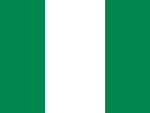 Nigeria
Nigeria
Nigeria joined CQUIN in November 2020. The National AIDS, Sexually Transmitted Infections Control and Hepatitis Programme (NASCP) coordinates Nigeria’s HIV Treatment Program, which started in 2002 under the Department of Public Health, Federal Ministry of Health (FMOH). The overall mandate of NASCP is to coordinate the formulation and effective implementation of national policies, guidelines, and standard operating procedures to prevent new HIV infections and treatment, care, and support for those infected and affected by the virus in Nigeria.
As of 2024, UNAIDS estimates that Nigeria has 2,000,000 [1,800,000-2,100,000] adults and children living with HIV, and an HIV prevalence of 1.2% in adults aged 15-49 [1.5% in women and 0.8% in men]. An estimated 84% of people know their HIV status, 83% of people who know their status are on treatment, and 79% of those on treatment are virally suppressed.

Visit ICAP's Website for a broader portfolio of work in CQUIN network countries.


